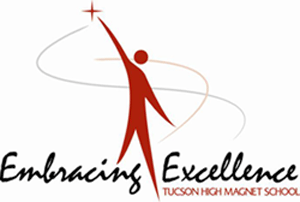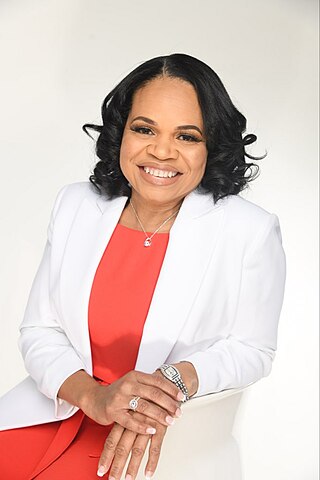
José Moreno Hernández is an American engineer and former NASA astronaut. He currently serves as a Regent of the University of California.

Los Medanos College (LMC) is a public community college in Pittsburg, California. Established in 1974, LMC has an extension in Brentwood and is part of the Contra Costa Community College District.

The California Academy of Mathematics and Science (CAMS) is a public magnet high school in Carson, California, United States focusing on science and mathematics. Its California API scores are fourth-highest in the state.

Science, technology, engineering, and mathematics (STEM) is an umbrella term used to group together the distinct but related technical disciplines of science, technology, engineering, and mathematics. The term is typically used in the context of education policy or curriculum choices in schools. It has implications for workforce development, national security concerns and immigration policy, with regard to admitting foreign students and tech workers.

Tucson High Magnet School, commonly referred to as THMS, THS, or Tucson High, is a public high school in Tucson, Arizona. It is part of the Tucson Unified School District with magnet programs in Technology, Visual Arts, and Performing Arts. The school is located adjacent to the University of Arizona and is close to the Downtown Arts District. It is the oldest high school in Arizona, having been established in 1892 and then re-established in 1906. The school celebrated its centennial in 2006. In terms of enrollment, THMS is the largest high school in southern Arizona and the sixth-largest in Arizona, with more than 3,500 students enrolled.
The Rochester Area Colleges Center for Excellence in Math and Science is an association of 19 post-secondary educational institutions located on the Nazareth College campus in Rochester, NY in west-central New York State. The RAC-CEMS focuses on the development and delivery of STEM topics in K-16 education and supporting programs designed to increase the quality and quantity of the student talent pool pursuing curricula in math, science and related technical fields.

The College of Science at the California State Polytechnic University, Pomona offers majors in nine fields leading to bachelor of science degree.

The Indiana Space Grant Consortium (INSGC) is a non-profit organization. INSGC's goal is expanding opportunities for the people of Indiana to learn about and participate in NASA's activities by supporting and enhancing science, technology, engineering, and math education, research and public outreach efforts. INSGC includes 23 academic, outreach, and corporate affiliates who work together to promote STEM education initiatives related to NASA themes and careers in the State of Indiana. Purdue University in West Lafayette, IN, serves as the INSGC lead institution under the direction of Dr. Barrett Caldwell.
Mathematics and Science Partnerships (MSP) is education policy from Title 2, Part B, Sections 2201-2203 of the No Child Left Behind Act of 2001. The purpose of MSP is to increase student achievement in science and mathematics by partnering IHE science, math, and engineering departments with elementary and secondary science and math teachers in high-need local educational agencies (LEAs) in order to develop teachers' content knowledge and instructional performance. SEAs may apply for competitive grants and then IHEs and LEAs may apply for a subgrant of the SEA.

Many scholars and policymakers have noted that the fields of science, technology, engineering, and mathematics (STEM) have remained predominantly male with historically low participation among women since the origins of these fields in the 18th century during the Age of Enlightenment.
NASA Alumni League is a U.S. organization that supports people that have worked for or at NASA or its predecessor NACA, to stay connected, and to "support the nation's space programs with technical expertise, educational outreach, and financial contributions to STEM organizations." The organization operates across the nation, also with state chapters that allow patrons to network locally. Three goals of NAL in the early 21st century were to "communicate with the NASA community", "to aid the NASA community with its comprehension of engineering and science, and "encourage members to participate in community service and in turn, encourage a dedication to the pursuit of scientific knowledge that benefits all humankind. " NAL is not part of NASA or the U.S. government, it is a non-profit organization founded in 1986.

Aprille J. Ericsson-Jackson is an American aerospace engineer. Ericsson-Jackson is the first African-American woman to receive a Ph.D. in mechanical engineering from Howard University and the first African-American woman to receive a Ph.D. in engineering at the National Aeronautics and Space Administration (NASA) Goddard Space Flight Center (GSFC).
The STEM pipeline is the educational pathway for students in the fields of science, technology, engineering, and mathematics (STEM). The start and end of this STEM pipeline are disputed, but it is often considered to begin in early education and extend into graduation or an adult career in STEM.

Ashanti Johnson is an American geochemist and chemical oceanographer. She is the first African American to earn a doctoral degree in oceanography from Texas A&M University.

C-STEM is a UC Approved Educational Preparation Program for Undergraduate Admission for all UC campuses, meaning that participation in the C-STEM program is recognized in the UC admissions process as achievements that have explicitly prepared students for college and career. C-STEM has University of California A-G Program Status. High schools can easily add the A-G approved rigorous C-STEM curriculum to their own school’s A-G course lists to satisfy the UC/CSU admission requirements.

Camille Wardrop Alleyne is a Trinidadian aerospace engineer, space scientist, and science ambassador. She is the Associate Program Scientist for the international Space Station at NASA's Johnson Space Center in Houston, Texas.
Minerva Cordero Braña is a Puerto Rican mathematician and a professor of mathematics at the University of Texas at Arlington. She is also the university's Senior Associate Dean for the College of Science, where she is responsible for the advancement of the research mission of the college. President Biden awarded her the Presidential Award for Excellence in Science, Mathematics, and Engineering Mentoring (PAESMEM) on February 8, 2022.

Out in Science, Technology, Engineering, and Mathematics, Inc., abbreviated oSTEM, is a 501(c)(3) non-profit professional society dedicated to LGBTQ+ individuals within the science, technology, engineering, and mathematics (STEM) community.
Ulrica Wilson is a mathematician specializing in the theory of noncommutative rings and in the combinatorics of matrices. She is an associate professor at Morehouse College, associate director of diversity and outreach at the Institute for Computational and Experimental Research in Mathematics (ICERM), and a former vice president of the National Association of Mathematicians.













